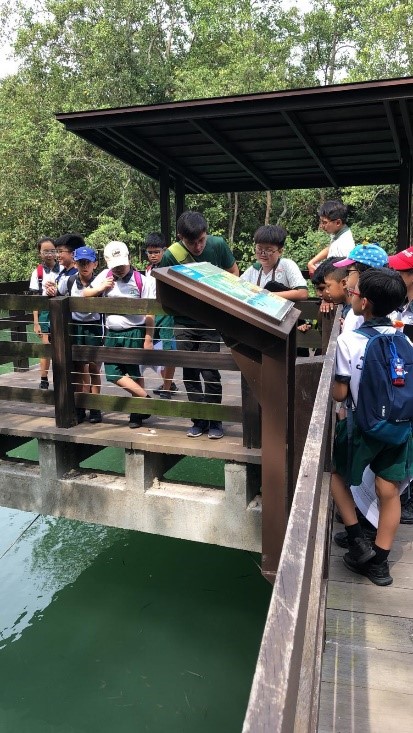Applied Learning Programme (ALP) Nature Based Education
Nature-based Education (NBE) is Casuarina Primary School’s Applied Learning Programme. It leverages on Inquiry Pedagogy to provide students with learning opportunities to construct their own meaning of knowledge and skills acquired, thus helping them to make sense of concepts learnt by applying and connecting them to the real world.
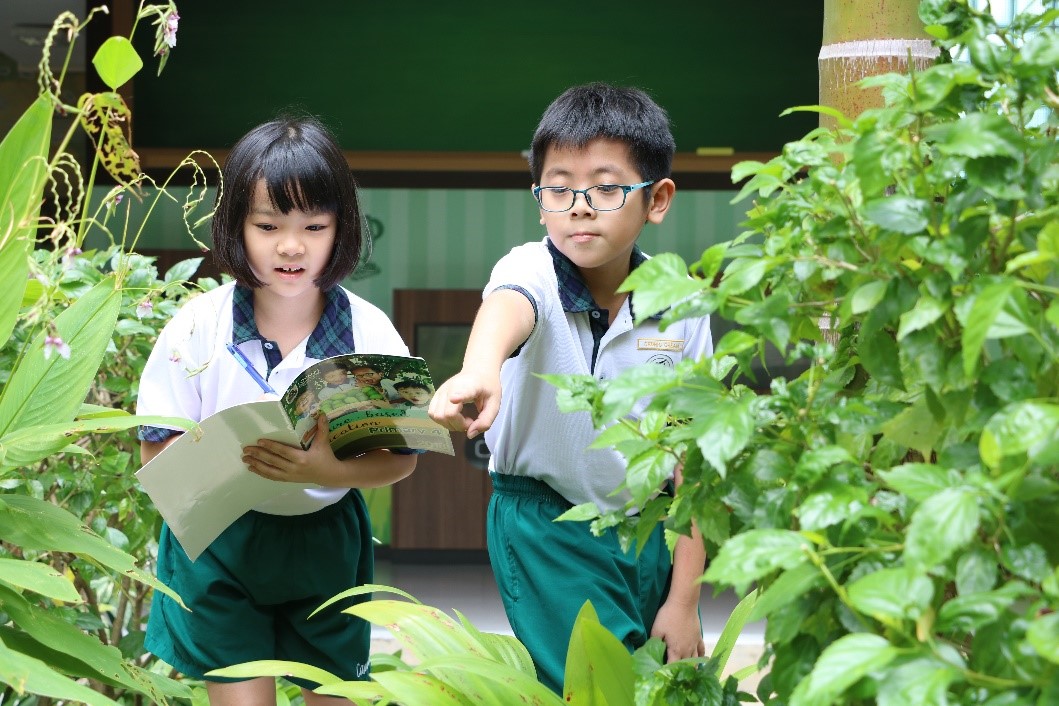
The aims of the programme are to nurture students with inquiring minds and responsible students who care for the environment they live in. Students explore freely in the garden and make discoveries for themselves. Elements of the natural world are used as focal points for teaching and learning during lessons, providing opportunity for students to connect knowledge and skills across subject disciplines. All students also learn the importance of protecting and preserving their environment and apply their learning through programmes like CAPS Go Green Programme.
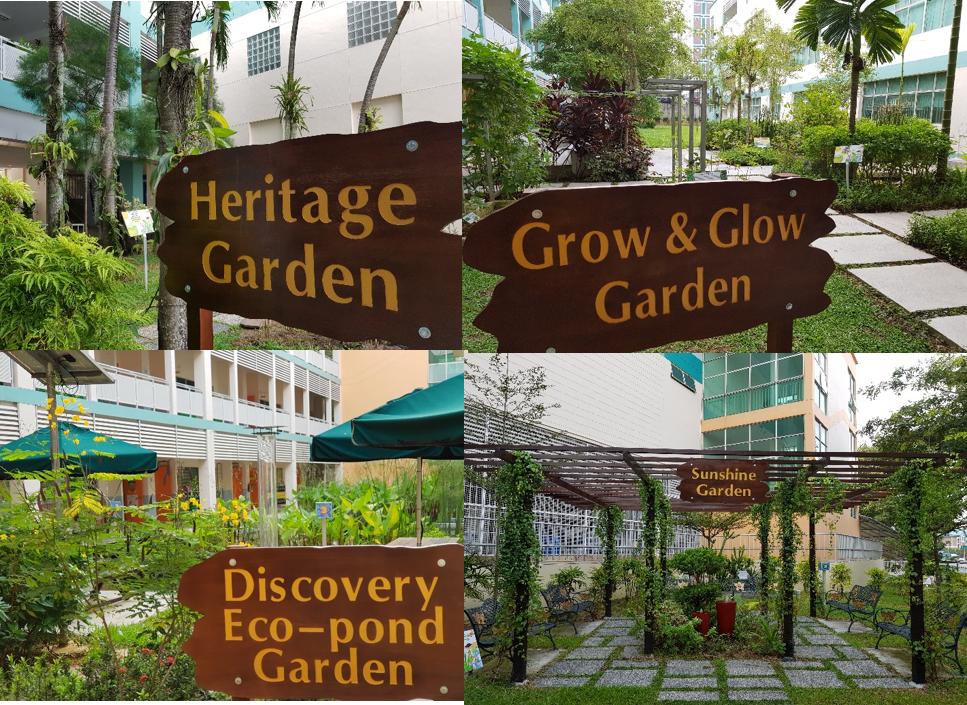
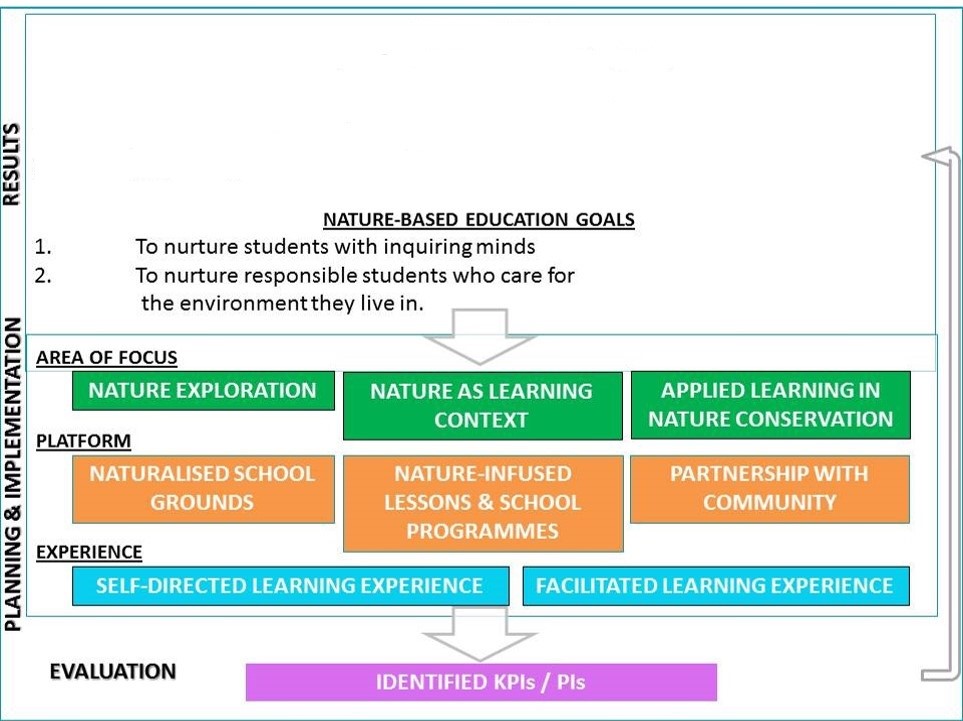
In line with broader educational goals, the school hopes to nurture students under cognitive, affective and moral domains. Under cognitive development, NBE provides a meaningful environment where students get to learn in context, bringing about deeper understanding, greater retention and better appreciation of concepts taught. Interacting with the natural world will also engage students’ affective capacities such as wonder, imagination and joy. When students experience emotional states of wonderment and curiosity, they form emotional interests that inspire them to seek and understand information and ideas. The element of value inculcation is pivotal in the school’s NBE as they learn about values such as care and responsibilities. More importantly, they are given opportunity to explore, discover and develop their personalities and identities.
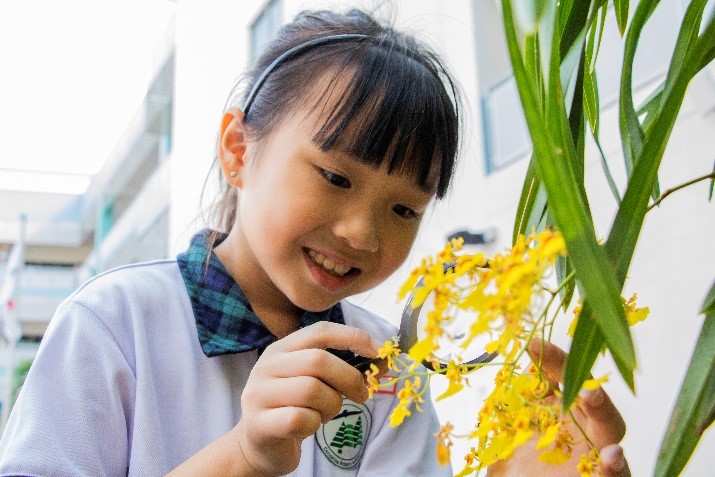
The NBE Curriculum not only involves the whole school and cut across the various departments, it also serves to impact students across the levels. The NBE curriculum comprises Nature-Infused School Programmes and Nature-Infused lessons, which are further classified under Nature Exploration; Nature Conservation; and Nature as Learning Context.
Besides using the school gardens as a platform for teaching and learning, students also went on learning journey to nature sites where elements of natural world are used as focal points for teaching and learning, providing opportunity for students to connect knowledge and skills across subject disciplines. They also embarked on projects and learn beyond the classroom. P3 and P5 students were engaged in Interdisciplinary Project Work after their learning journey to Dairy Farm Nature Farm and Sungei Buloh respectively.

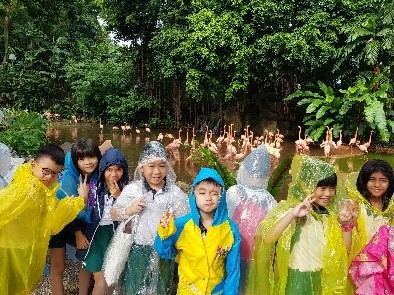
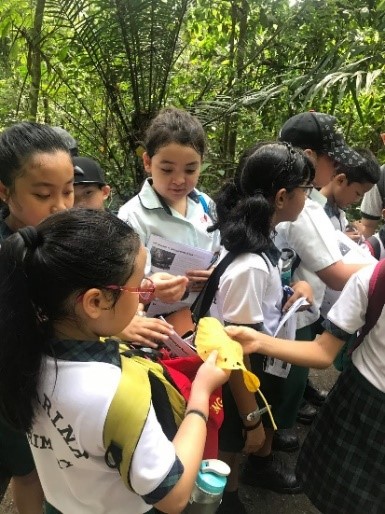
| P1 - Zoo | P2 - Jurong Bird Park | P3 - Dairy Farm Nature Park |
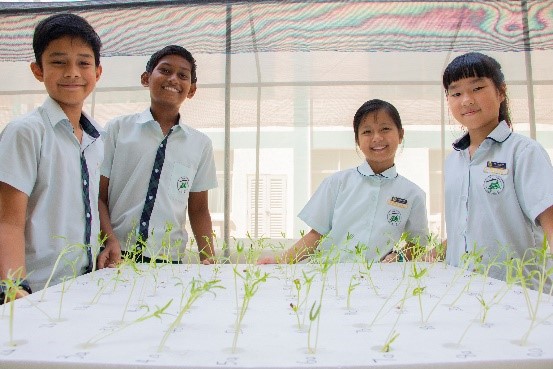
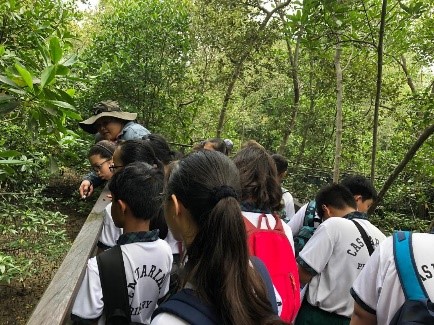
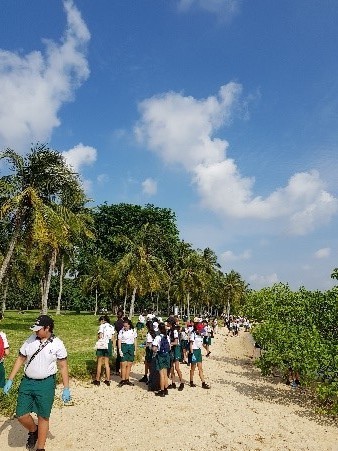
| P4 - Hydroponics | P5 – Sungei Buloh | P6 – Pasir Ris Park |
The theme of nature is also infused into one of the domains of Programme for Active Learning (PAL), Outdoor Education. Students get to explore and interact freely and spontaneously with the natural environment. Through their personal interaction with the natural environment, students learn more about their role in the environment and more specifically, how their actions impact the environment around them.
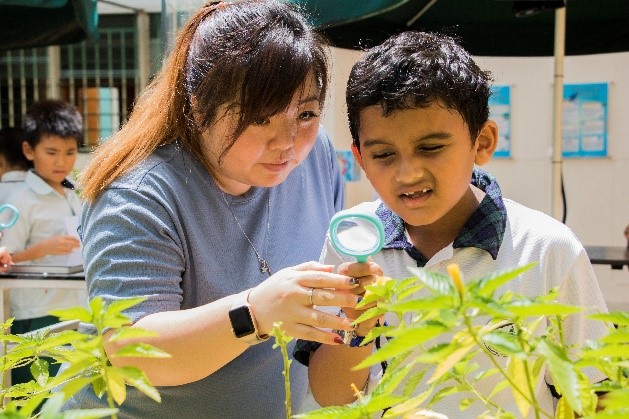
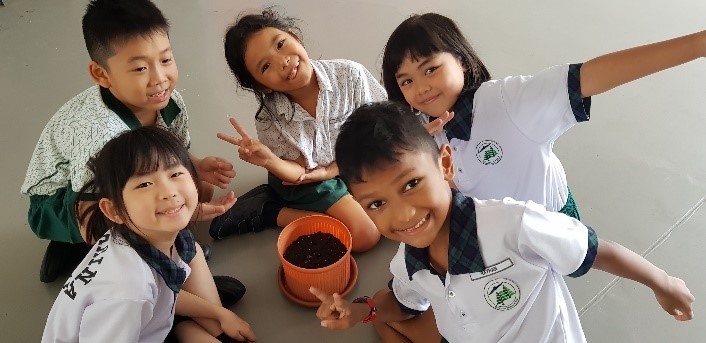
Students apply their understanding of their role in the environment to help them understand the consequences of their actions and be responsible for the things they do. This, is core to Nature Conservation. Values are inculcated through programme, Values-In-Action (VIA). P3 students participated in National Environment Agency (NEA) programme, Clean Buddy Trail which they were involved in an ‘Area Cleaning in the School’ Project. Students went around the school compound and picked up litter that cannot be decomposed. Save the Earth message was also brought home through Parent and Child Bonding Activity. Parents and their child made compost using food waste. As for the P4 students, they created terrarium, upcycled carton pouch and banner wallet with the elderly from Lions Befrienders Service Association (Singapore). P6 students learnt about man’s impact on the environment. After which, they picked up litter along Pasir Ris Beach.
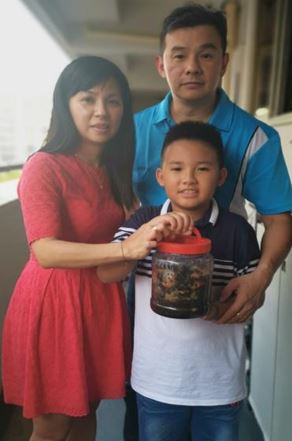
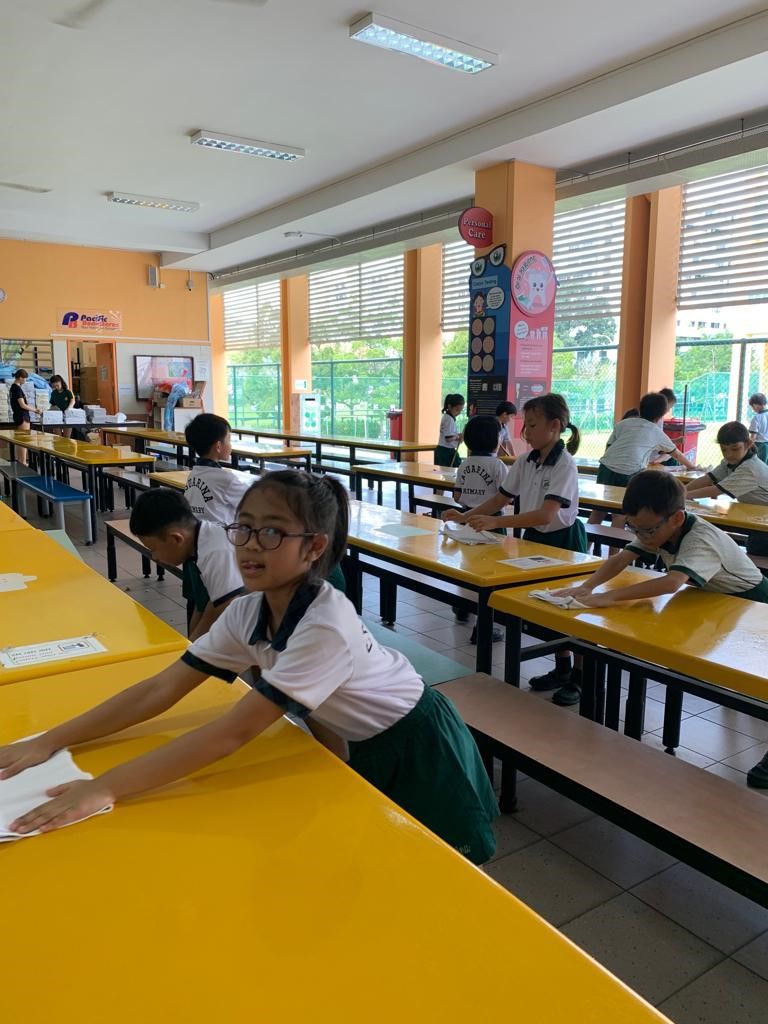
| P3 – Parent-Child Composting Activity | P3 – Area Cleaning in the School Project |
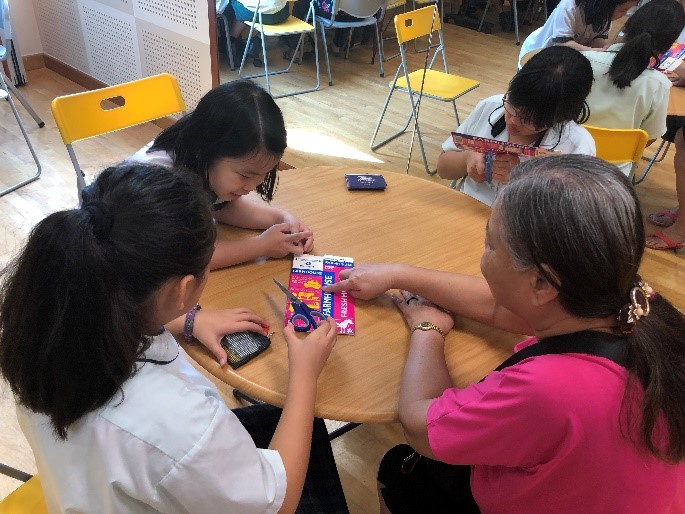
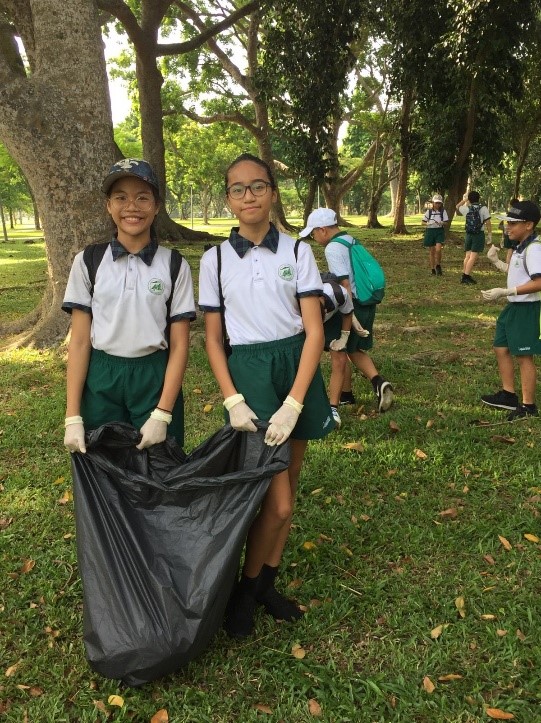
| P4 – Upcycling Activity with the elderly | P6 Litter picking at Pasir Ris Park |
All students also learn the importance of protecting and preserving the environment surrounding them and apply their learning through programmes like CAPS Go Green Programme. Student leaders like the Character and Citizenship Ambassadors help out with the paper recycling collection. They also ensure all lights, fans and all electrical devices are switched off before leaving the classrooms.
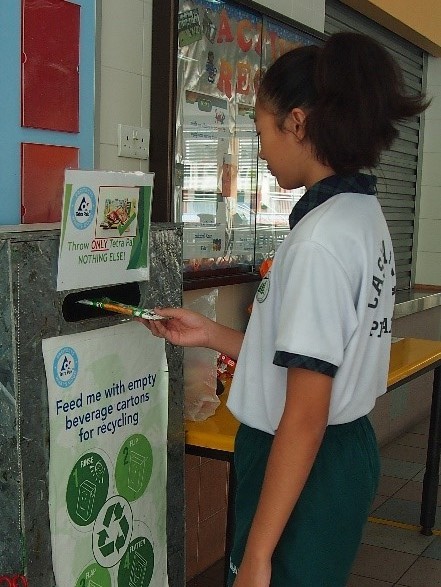
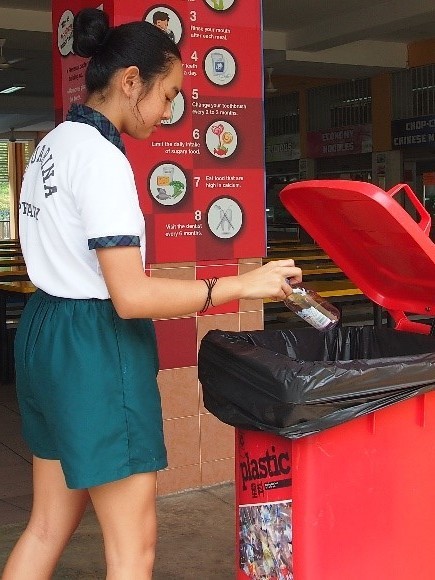
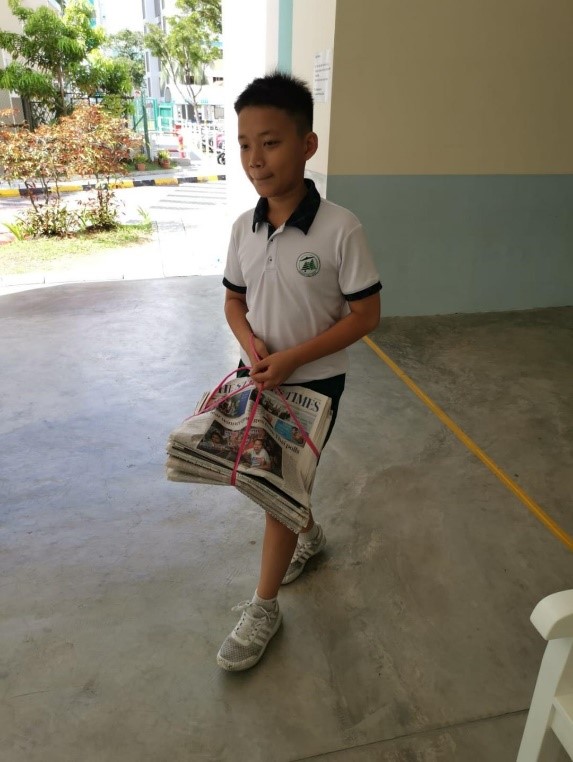
| Tetra Pack Recycling | Plastic Bottle Recycling | Paper Recycling |
We actively seek organisations that help to provide learning opportunities that our students would not have had in school. Such collaborations also help our students to see the connection between the curriculum in school and the skills required in the real world as well as hone public-speaking skills and boost self-confidence. The Science and Environmental Club collaborated with NParks for a series of Nature-infused activities. They are also the Nature-based Education Ambassadors. These student leaders had shared with the school about man’s impact on the environment through fun games during Biodiversity Day. They even conducted a terrarium demonstration for the elderly during the VIA activity.
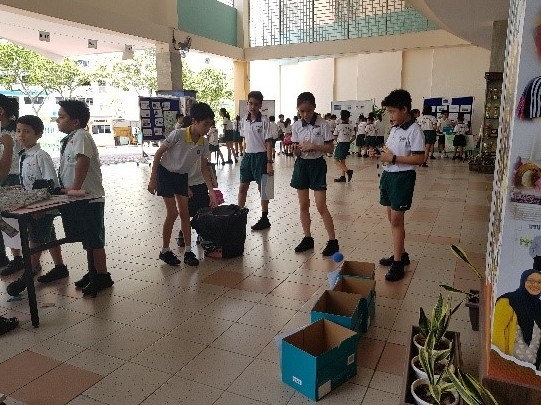
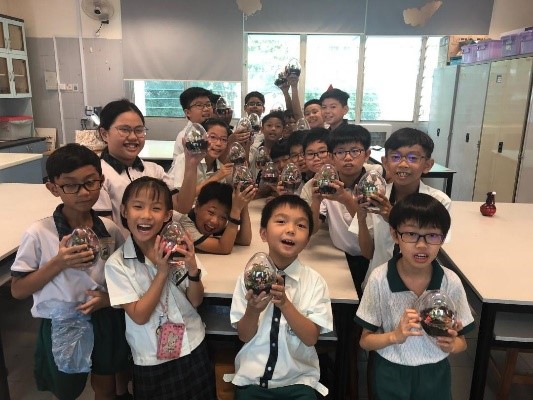
| NBE Ambassadors shared about man’s impact on the environment through fun games. | NBE Ambassadors learnt how to create terrarium before sharing with the elderly. |
